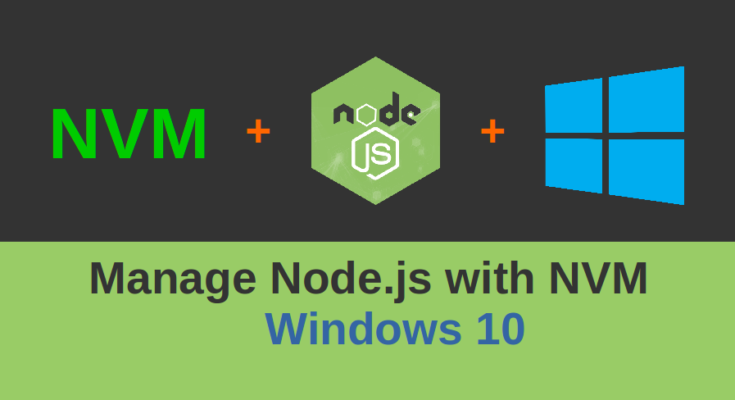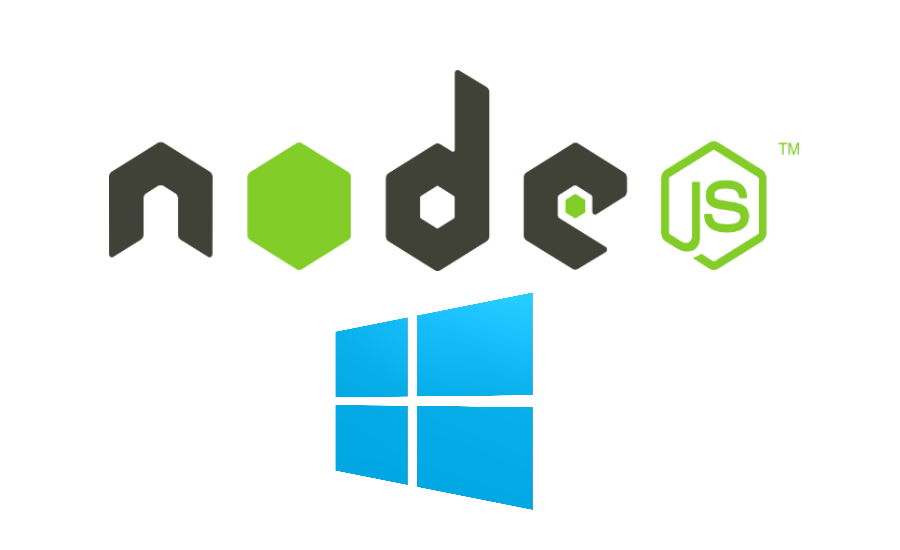

Nvm- noinstall.zip : Green installation free version, but need to be configured when using. Open the website, we can see that there are two versions: The download, installation and usage are listed below. It can install and switch different versions of nodejs.
#Nvm install node windows full#
NVM full name node.js Version management, as the name suggests, is a nodejs version management tool.

Detailed information can be viewed on the official website of NVM. It can easily switch between multiple versions of nodes on the same device. In this case, it will be a very troublesome thing to maintain multiple versions of nodes. To make it even easier to use, I added a few helper functions to my PowerShell profile.We may be working on two or more projects at the same time, and different projects may use different versions of node, or we may need to use the latest version of node for experiment and learning.
#Nvm install node windows windows#
NVM for Windows is not a perfect solution, but it works well enough to make it easier to work with different versions of Node.js on Windows. It's far from perfect, but it works well enough for me and required minimal effort to make it work. nvmrc file and switch to the correct version of Node.js: Function Nvm-UseFromNvmrc Since the projects I work on only use the nvm/* syntax, I created the following helper function to parse the contents of the. Unfortunately, this is not supported by NVM for Windows. Then you can switch to the correct version simply by calling: nvm use nvmrc file in the root folder of a project to specify the version you need. The Linux/macOS version of nvm supports a. There was one last thing that was bugging me.

Now I can just call one of those functions to switch to a different Node.js version: Nvm-Use10 Start-Process -Verb RunAs nvm -Args "use 16.13.0" Start-Process -Verb RunAs nvm -Args "use 14.18.1" Start-Process -Verb RunAs nvm -Args "use 12.22.7" Start-Process -Verb RunAs nvm -Args "use 10.24.1" The syntax is a bit complicated, so I created a few functions in my PowerShell profile to make the command easier to use: Function Nvm-Use10

I decided to use the Start-Process PowerShell command as a workaround: Start-Process -Verb RunAs nvm -Args "use 10.24.1" I am not comfortable having admin privileges in my terminal, and I wanted to avoid having to open another terminal window when I want to switch to a different Node.js version. The official recommendation is to use the tool from an admin terminal window. This is because the tool uses symlinks that require admin privileges to create. It was time to switch to one of these versions and start working: nvm use 10.24. I then installed all the Node.js versions that I might need to use in the near future: nvm install 10.24. After I restarted the terminal window, the nvm command was available to me. When I was done with that, I downloaded nvm-setup.zip from the NVM for Windows releases page and ran the installer from that archive.


 0 kommentar(er)
0 kommentar(er)
